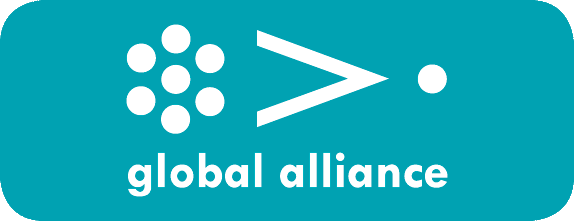Ethics in Professional Practice and Nation Building
Dr. Rotimi Williams Olatunji, ARPA, MNIPR
Professor Public Relations & Advertising, Dean, School of Communication & Chairman, LASU RADIO 95.7 FM Station, Lagos State University, Ojo Lagos, Nigeria
Introduction
Today is historic. The date itself is symbolic: 20/02/2020. Global Alliance, the umbrella body bringing together public relations professional bodies and professionals has adopted February 2020 as the month of global attention to issues of ethics in professional and personal conducts. This, in a nutshell is a clarion call for global citizens to give deserved attention to the values, virtues and ideals that bring out the humane in humanity; the ideals that separate man from the lower primates and other animals; the ideals that extinguish the bestiality from humanity. Put in proper perspective, personal and professional ethics, ideally represent the finesse in humanity.
In this paper, I begin with conceptual clarifications on ethics and professional practices. In addition, I will identify basic components of public relations ethics, exemplified by ethical codes of select public relations institutes. I will also extensively discuss the interrelationships between ethics and national development, while linking the attainment of the United Nations Sustainable Development Goals (Vision 2030) to the adoption of best personal and professional ethical practices. My conclusion will reemphasize the need for a combination of best personal and professional practices as the most assured path to sustainable development at national and global levels.
Conceptual Clarifications
What is Ethics?
Ethics is often defined in association with issues around the good and the bad; justice and injustice, rightness or wrongness, fairness and unfairness, and so on.
CiFA (2017, p. 2) defines ethics as “the study of moral philosophy, which helps us to decide what is right and to act accordingly”.
Earlier, Olatunji (2005, p 652) says that ethics is the science of morals and a branch of philosophy that uses personal, professional and societal norms and mores as basis for “evaluating human conducts”. Ethical issues dwells on “value judgment regarding what is right or wrong, good or bad, responsible or irresponsible behaviours”.
Bowen (n.d) defines ethics as the moral philosophy involving “systematizing, defending, and recommending concepts of right and wrong behaviour”. He opines further that in public relations, ethics includes values such as honesty, openness, loyalty, selfmindedness, respect, integrity and forthright communication”.
Ethics vs. Law
A distinguishing feature has to do with enforcement of sanctions. Law deals with somewhat severe sanctions but moral sanctions are more important in dealing with ethics.
Personal and Professional Ethics
“Professional ethics relates to a set of philosophical rules of behaviours that an association establishes and are morally binding on every member of the group”(Olatunji, 2005, p. 653). With professional ethics, every individual’s rights are often subjected to the overall acceptable standards within the professional body in question. Professional ethics may further appear in the form of Quandary ethics. Quandary is a state of dilemma, predicament or state of confusion. This occurs when a professional finds herself in a morally confused or confusing state or ethical dilemmas. This sometimes occurs when there is a conflict between personal values and professional requirements. Trial of Brother Jero, authored by Wole Soyinka, Nobel laureate or IDAMU PADRE
Evolution of Public Relations Ethics
Bowen (n.d.) traced the historical evolution of public relations ethics beginning with the Edward Barneys (1850-1905) let “the public be damned era”, through Ivy Lee’s 1906 “the public be informed” era; John W. Hill’s (1958 & 1963) advocacy of ethical counsel of management and that public relations should act as “corporate conscience”, to the modern era of “open, ethical and socially responsible forms of public relations”. The finest moment come when in 1965 professionals adopted the Code of Athens, a universal set of ethics guiding the human relations teaching and learning.
Philosophy of Professional Ethics
Drawing from the works of Roger Steare (2014) CiFA (2017, p. 4) postulated that professionals must be guided by three ethics:
1. The ethic of care, which he says is linked to the philosophy of consequentialism or utilitarianism. It is guided by the embedded consequences of our actions on a larger majority in the society, although this position stifles or marginalises the minority.
2. The ethic of reason that encompasses such virtues as wisdom, and self-control or temperance. Ethics of care is similar to the theory of reasoned action (TRA), or theory of planned behaviour often associated with health communication campaigns. Rationality in ethical decisions is often flawed because of differences in individual capacity to arrive at generally acceptable reasoned decisions.
3. The ethic of obedience. This is often based on deontological philosophical worldview which claims that what is right or wrong comes from externally imposed (ethical) codes or rules. But ethical conducts decisions that are externally imposed, and not fully internalised can hardly endure.
GLOBAL PRINCIPLES OF ETHICS (2018)
Global Alliance for Public Relations and Communication Management has adopted February 2020 as the month of total focus on issues of ethics in professional practices. This is what underscores the critical significance of today’s conversation.
a) Working in the public interest
b) Obeying laws and respect diversity and local customs
c) Freedom of speech
d) Freedom of assembly
e) Freedom of media
f) Honesty, truth and fact-based communication
g) Integrity
Principles of professional ethical practice:
1. Commitment to continuous learning and training
2. Avoiding conflict of interest
3. Advocating for the profession
4. Respect and fairness in dealing with publics
5. Expertise without guarantee of results beyond capacity
6. Behaviours that enhance the profession
7. Professional conduct
Public Relations Code of Athens- a set of ethical guidelines adopted by public relations bodies when they met in the city of Athens in the early 1965 to adopt a common set of ethical code.
Continue reading the full paper here.


